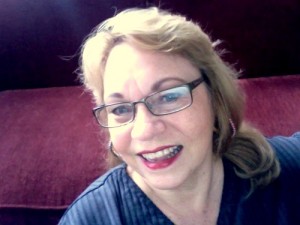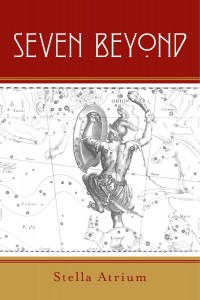Which Women Writer Did You Want to Be?
 I thought about my early ambitions the other day and realized that we come to ourselves through a long series of ‘Nope, not that.’ or even ‘Been there, done that.’
I thought about my early ambitions the other day and realized that we come to ourselves through a long series of ‘Nope, not that.’ or even ‘Been there, done that.’
The only thing I ever wanted to be was a writer — a Great American Novelist. More specifically, I wanted to be F. Scott Fitzgerald. I didn’t want to be Zelda, the wife of a famous writer. The lifestyle was not my focus, the stories were.
I liked how Fitzgerald used anglo words and sneered at the French language that his buddy Hemingway only side-stepped. I liked that Fitzgerald exposed the pretension of the new money classes and didn’t require a happy ending for a love story.
Later I discovered Lillian Hellman and wanted to be her, except she was so uncomfortable in her skin (when young). She told the stories from the point of view of the women, even though they were victims of the plot rather than driving the plot. Margaret Atwood does something similar, displaying the women as powerless in a stilted marriage or without funds or smarts to make a difference.
But why not a story where the female lead character drives the action?
You will suggest Sylvia Plath, I’m certain. Nope, not that.
 There’s Carson McCullers, of course. Southern Gothic was her genre, and I was influenced by The Heart is a Lonely Hunter that I read at an early age. McCullers was sort of chewed up by the NYC writer’s lifestyle, though, as was Harper Lee (To Kill a Mockingbird).
There’s Carson McCullers, of course. Southern Gothic was her genre, and I was influenced by The Heart is a Lonely Hunter that I read at an early age. McCullers was sort of chewed up by the NYC writer’s lifestyle, though, as was Harper Lee (To Kill a Mockingbird).
These stories are presented as confessions, a slice of life, illustrations of the era. Plots were outgrowths of situation following that axiom to write what you know.
“Today you are You, that is truer than true. There is no one alive who is Youer than You.” – Dr. Seuess
But my life was boring – well-raised, bookish, affluent, Midwestern (not from the South where they seem to suffer more deeply). So … Nope, not that.
I liked action adventure stories like The Perils of Pauline or Love is a Many-Splendored Thing. I wanted the woman to drive a real plot. Why was that so much to ask?
So I read more stories by women in the fantasy genre like Louise Erdrich who brings in mythical elements from Native Americans, and Juliet Marillier’s series about a Daughter of the Forest. The girl protagonist was typically young and imbued with unusual powers of seeing. Other genre writers sent 14-year-old girls into battle in full armor and wielding a 24-inch battle sword. This impossible heroine makes the same choices a guy would make, except she’s gender female (often a cross-dresser like Arya in Game of Thrones). Nope, not that.
I read Robin Hobb’s many series (series-es) that start with The Assassin’s Apprentice. Hobb certainly has the chops for the fantasy genre with immediacy and surprise. (Dragon warming stations: still too funny!) I wondered why the primary character was not a girl. The female characters (in the early series) were relegated to stilted roles of a candle-maker and a misunderstood queen who wielded minimal powers through example and patience. The many lady-aunties accomplished small victories behind the scenes while presenting a benign presence at court. Nope, not that.
Is the same true for you, dear writer who is reading this blog? Do you come to goals for what you want to accomplish by what you know you don’t want to reinforce? Here are some of my standards I impose for my own stories:
-Girl protagonist (past age 18) who drives the story
-The protagonist isn’t isolated – knows her mother and sisters and cousins and opponents
-Real problems that real women have to solve (without pretending to be a boy)
-Believable obstacles such as no voice in public and no funds to achieve goals
-A plot that has a crescendo at the end, not slice of life
-Each character grows during the story arch (even the men)
This last goal is a pet peeve of mine that I call the Lee Remick syndrome. She played opposite Jack Lemmon in The Days of Wine and Roses. They were both drunks and he went through all the stages including getting clean but backsliding. She kicked him out so she could raise their daughter in a stable life, but he visited during his many ups-and-downs. Each time she opened the door, Remick looked the same, not a line on her face. She may have worn the same wig for the whole movie that spanned a couple of decades.
Nope, not that.
—
Stella Atrium is an author based in Chicago Illinois USA. Article about Stella in the Chicago tribune: http://speakingincommunity.
Follow Stella on Facebook and on Twitter @SAtrium.
Category: Being a Writer, On Writing

























I like your criteria for your protagonists! My first protag is isolated (after her mother’s death) but is immediately drawn to make friends and allies through the plot. That bullet point is vital because pop culture steers us away from cooperation so much.
My earliest author loves were Judy Blume and Laura Ingalls Wilder. As I got older, Louisa May Alcott and Anne McCaffery. Older yet, Ursula Le Guin and Robin McKinley… that gets you up into Junior high. I was influenced by Margaret Atwood and Octavia Butler, and wrote an essay in Spanish about the Magical Realism of Maria Luisa Bombal.
Don’t think I really wanted to be any of them (Okay, I totally went through a Jo March phase in 6th grade) but I learned from them. 🙂
Hey, AK…
I think it’s fine to be influenced by the writers and by the characters. We give ourselves to the stories and that’s our first impulse to write one of our own.
You would also love Robin Hobb, I think. Start with the Assassin Apprentice series. The protagonist is a boy, but this series sets up the later ones with strong female characters.
Thanks for posting!
The woman writer I want most to be is…..myself 🙂 no seriously I like V.C. Andrews her stories just keep me interested and my imagination goes wild when I try to envision her characters, what provoked her to go with that plot. I think all women writers are amazing and I’m in high support of new female authors, who are strong and don’t back down because they didn’t achieve their goals the first time.
Tanesa, thanks for your post. Perseverance is a important quality for any writer. Women writers are swimming against the current, though, for presenting themes that appeal to women while meeting expectations for publishers and agents. When a writer is original, the question always arises about where she fits in the genres. More of us should ban together to break the mold and write for ourselves using themes that other women can recognize in their own lives.
Keep on truckin’!
Well, I actually never thought I wanted to be anyone though. All the female writers I know always had something I wanted. So, why not be a hybrid? **smiles** seriously, I started wondering what a ‘hybrid writer’ with a Ursula Le Guin part, a Harper Lee arm, a Mary Higgins Clark thigh and maybe add the sexy lips of S. Atrium **lol**
I just want to be better at what I do actually. I’m aspiring and I would like to focus on teen novels and children’s fiction and nonfiction.
Great post, quite thought-provoking. I don’t remember ever wanting to be a particular woman novelist, I just wanted to write. I do like the list of character standards, towards the bottom of your post. Thx! SD
Great post! Love the topic. For me, the thoughts you’ve identified run in deep background mode. Sorting out direction and style. For me, it’s also involved seeing the level of courage it takes to share some stories.
Ursula Le Guin and Mary Doria Russell were two I deeply admired. I’ve read to try to understand myself, looking for answers to life’s questions and finally realized I was on a spiritual journey. I’ve been a feminist from the time I was about 14 and never dreamed I’d be in the place I am now. Trying to figure out how to tell people about what I’ve experienced has been really challenging, but I’m getting there. It’s coming from both my experiences as a feminist and experiences that made me start to believe that God works directly in our lives and what that’s meant for me, for women in general and for our democracy. It’s a strange place to be, but I’ve been driven to work on these ideas for about 15 years. Hope you’ll check out my most recent blog post – Lone Pine: Two Feminists’ Take On Spiritual Experiences. I share a little more on my Books and About pages.
CeeJae, thanks for your thoughtful post.
Our beliefs don’t always fit into the roles society assigns us. Reconciling feminism with faith is not simple. I have been an advocate of women’s issues all my life, but I do not call myself a liberal, only liberated.
Our answers are often very different than the narrative for women that we find in the community.
Katherine Boo. Behind the Beautiful Forevers has deeply affected my writing and even the way I live and think, here among the urban poor in the Horn of Africa. And I agree with Jane – Anne Lamott.
This is a great thread. I’m getting all new names of women writers for hours of reading pleasure!
This is easy for me. The first two women writers I fell in love with were Ann McCaffrey and Ursula K. Le Guin. To me, they showed girls and women that I wanted to be. They created some amazing worlds where I lost myself for hours on end.
Kimberly, I was crazy about the speculative fiction writers who created worlds to where I could escape. EarthSea was one of my favorites. The women characters seemed more true to life (for leading and problem solving) than what I found in movies or TV or crime dramas or romance.
Go figure!
Mary Roach is a constant source of inspiration for me. She takes on the uncomfortable things we all don’t want to talk about and…talks about them. Tells the stories of things we all ask questions about when we’re six and are told to wait until we grow up. And she’s hysterical.
Then there’s Anne Lamott. Another take charge, down-to-earth writer about the unfathomable.
Nope. I am not a fiction writer.
Jane, we tend to read in the same genres where we write. I like down-to-earth writers who teach me something about my world, even if obliquely.
Thanks for posting!